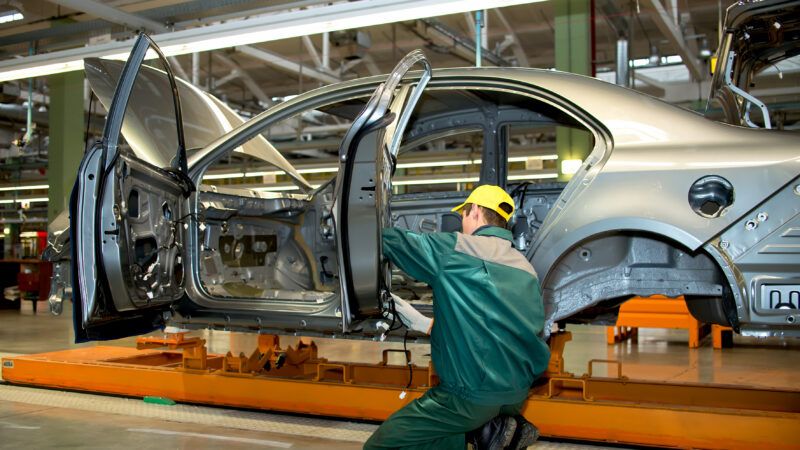Giving Away Taxpayer Money Is Not the Best Way To Attract Investment
State and countries should make their business climates more attractive to investment, not just dole out taxpayer money.

As the U.S. spends billions of dollars on energy subsidies, some allied nations are following suit, throwing money at the problem to compete.
A recent report in the Financial Times noted that there is a "global subsidy war" taking place. Last year's Inflation Reduction Act (IRA), part of President Joe Biden's agenda for transitioning to clean energy, included tax credits both for purchasing electric vehicles and for the production of renewable energy. But the vehicle credits only apply to cars assembled and sourced in North America, while the production credits offer a 10 percent bonus for domestic production. And the CHIPS Act of 2022 lavished wealthy companies with billions of dollars in federal subsidies to shore up semiconductor production.
Not that all of that funding will go to American firms, of course: The Financial Times article cites an analyst who predicts that by 2026, "Korean battery makers will stand to collect an annual collective subsidy from the US taxpayer of upwards of" $8 billion from a single IRA production provision. Germany's vice-chancellor and economics minister Robert Habeck compared IRA subsidies to "a declaration of war."
In an attempt to stop companies from moving to the U.S. in pursuit of free money, Japan, South Korea, and the European Union have each responded with incentives of their own. The E.U. is estimated to spend over 800 billion euros ($898.44 billion USD) on renewable energy subsidies between 2022–31. Northvolt, a Swedish company that makes batteries for electric vehicles, opted to build a factory in Germany instead of the U.S., in exchange for around 500 million euros ($561.5 million USD) in German subsidies.
But giveaways of taxpayer money are not the only way to attract business investment. A report by the German Economic Institute, a pro-free market think tank based in Cologne, found that in 2021, the year before the IRA was passed, German businesses sent more than 135 billion euros ($151.6 billion USD) worth of investment out of the country while only 10.5 billion euros ($11.8 billion USD) came in.
The Financial Times article notes that even without subsidies, companies moving from these countries to the U.S. can "benefit from lower energy costs and taxes." This is ultimately a much better goal for governments wanting to attract investment: Instead of doling out taxpayer money, make the business climate more attractive to potential businesses.
According to a May 2023 report from S&P Global Market Intelligence, the southern U.S. states produce an increasing number of automotive jobs. Of the electric vehicle factories that automakers have pledged to build, two-thirds of the expected jobs will be located in Georgia, Tennessee, Kentucky, and North and South Carolina. The report notes, "Costs likely swayed the project decisions to the South, which has lower wages and unionization rates along with generally cheaper electricity and real estate prices. Future labor needs are a key consideration, too: The South has an enormous leg up on the Midwest in terms of population growth trends and its ability to draw residents from around the country."
That confluence of factors—cheaper land, cheaper labor, cheaper rates of electricity—combined to make the South a more attractive target than the Midwest, where the auto industry lived for generations. A 2018 research paper by Timothy Bartik of the W.E. Upjohn Institute for Employment Research determined that regarding subsidies, "typical incentives probably tip somewhere between 2 percent and 25 percent of incented firms toward making a decision favoring the location providing the incentive." In other words, a business makes a decision on where to spend money based on other factors at least 75 percent of the time.
When the U.S. rolled out billions of dollars worth of subsidies, allied nations around the world did the same. As a result, international alliances are strained, and billion-dollar companies get generous payouts just for building the facilities they were going to build anyway. The market should decide, not bureaucrats looking to burn taxpayer money.


Show Comments (16)